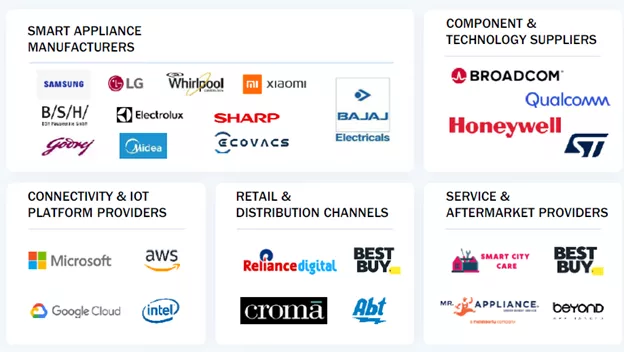According to a research report "Gesture Recognition and Touchless Sensing Market with COVID-19 Impact Analysis by Technology (Touch-based, Touchless), Type, Product (Touchless Biometric Equipment, Touchless Sanitary Equipment), Industry and Geography - Global Forecast to 2026", published by MarketsandMarkets™, the market is projected to reach USD 37.6 billion by 2026 from USD 13.6 billion in 2021; it is expected to grow at a CAGR of 22.6% from 2021 to 2026.
North
America has the
largest market share for gesture recognition and touchless sensing. Whereas,
APAC has the highest growth rate and is expected to grow at the highest CAGR
during the forecast period owing to the rapidly changing face of technology and
customer needs in high-potential markets such as China, Japan, South Korea,
and India. Due to advancements in
technology and the emergence of new business models as well as new
infrastructural developments in the developing cities of the region, the
gesture recognition and touchless sensing market is exhibiting an upbeat
outlook. The growing awareness of hygiene and advancement of security standards
would further fuel the adoption of gesture recognition and touchless sensings
in APAC. Furthermore, growth in end-use sectors and mounting investments from
government bodies are also favoring the growth of the gesture recognition and
touchless sensing market in the region.
Ask for PDF Brochure:
https://www.marketsandmarkets.com/pdfdownloadNew.asp?id=369
In technology, the touchless technology segment is expected to
grow at the highest rate of the gesture recognition and touchless sensing market
Touchless technology
combines linguistics with wireless signals to analyze, judge, and integrate
human gestures and sensing by using intelligent algorithms. Gesture recognition
is achieved with the help of machine learning technologies. Touchless technology
is affected by some objective factors, such as the user's position and non-line
of sight conditions. Touchless user interface (TUI) is an emerging type of
technology concerning gesture control. TUI is the process of commanding the
computer via body motion and gestures without touching a keyboard, mouse, or
screen. Touchless gesture recognition in a vehicle improves safety while
driving. The less time the driver spends navigating through menus, the more
time focused on the road. The touchless technology market is expected to
dominate the gesture recognition and touchless sensing market, by technology,
during the forecast period. The large share of this market segment can be
attributed to the larger customer base for touchless technologies. The consumer
electronics industry has largely adopted touch-based gesture recognition
technology due to its low cost and increased use by original equipment
manufacturers. Touch-based technology is also largely used in gaming and
automotive applications due to the emerging human-machine interaction
technology for touch-based gesture recognition.
The high growth rate
throughout the forecast period for touchless devices is due to the enhanced
user experience while operating touchless devices.
The online type
segment, of the gesture recognition market is projected to hold a larger share
during the forecast period
Online gesture
recognition is used to scale or rotate a tangible object and control a machine
or a computer in real-time. Also called direct manipulation gestures, it lets
the user interact with objects and impose changes viewable as done to them.
Online gestures are regarded as direct manipulation, such as scaling and
rotating. In contrast, offline gestures are usually processed after the
interaction is finished—for example, a circle is drawn to activate a context
menu. Offline gesture recognition is a relatively newer technology than online
gesture recognition, owing to which the rate of recognition in offline gestures
is lower than that of online gestures.
Browse in-depth
TOC on "Gesture Recognition and Touchless Sensing Market"
179
– Tables
76 – Figures
240 – Pages
Inquiry Before Buying:
https://www.marketsandmarkets.com/Enquiry_Before_BuyingNew.asp?id=369
The gesture
recognition and touchless sensing market in APAC is projected to have the
highest CARG during the forecast period (2021-2026)
The gesture
recognition and touchless sensing market in APAC comprises China, Japan, South Korea, India,
and the Rest of APAC, which primarily includes Australia, Singapore, Malaysia and Thailand. It is expected to be the fastest-growing
market for gesture recognition and touchless sensing during the forecast
period. Developing countries in the Asia Pacific region
also have vast growth potential and a favorable environment for product
manufacturers. Therefore, the touchless sensing market in the Asia Pacific region is expected to grow at the
highest rate during the forecast period. The increasing number of smart city
and smart infrastructure projects undertaken by the governments will create
several opportunities for gesture recognition and touchless sensing in the next
few years. The increasing awareness regarding hygiene and advanced security
standards in emerging countries, such as India and China, are propelling the growth of the gesture
recognition and touchless sensing market. Moreover, governments give prime
importance to security in countries such as China, Japan, and South Korea.
Moreover, the growing demand for gesture-enabled products, such as smartphones,
laptops and tablets, and smart TVs, is expected to propel the growth of the
gesture recognition market in APAC. The biometrics market in the APAC region is
set to grow owing to technological advancements in biometric technology and the
low costs of biometric equipment. The increasing security concerns in the regions
major countries have driven the need for accurate and reliable biometric
systems. The e-passport program has picked up pace in many countries, and the
Aadhaar number initiative by the Indian government has created an increasing
demand for touchless biometrics. The demand for touchless biometrics is on the
rise owing to the accuracy of biometric systems. Contactless biometric
solutions are more hygienic as compared to touch-based biometric systems. The
huge demand for smartphones and tablets is a prominent driver for the gesture
recognition market in the APAC region. This is evident with the number of
products launched from the OEMs in the last two years.

No comments:
Post a Comment